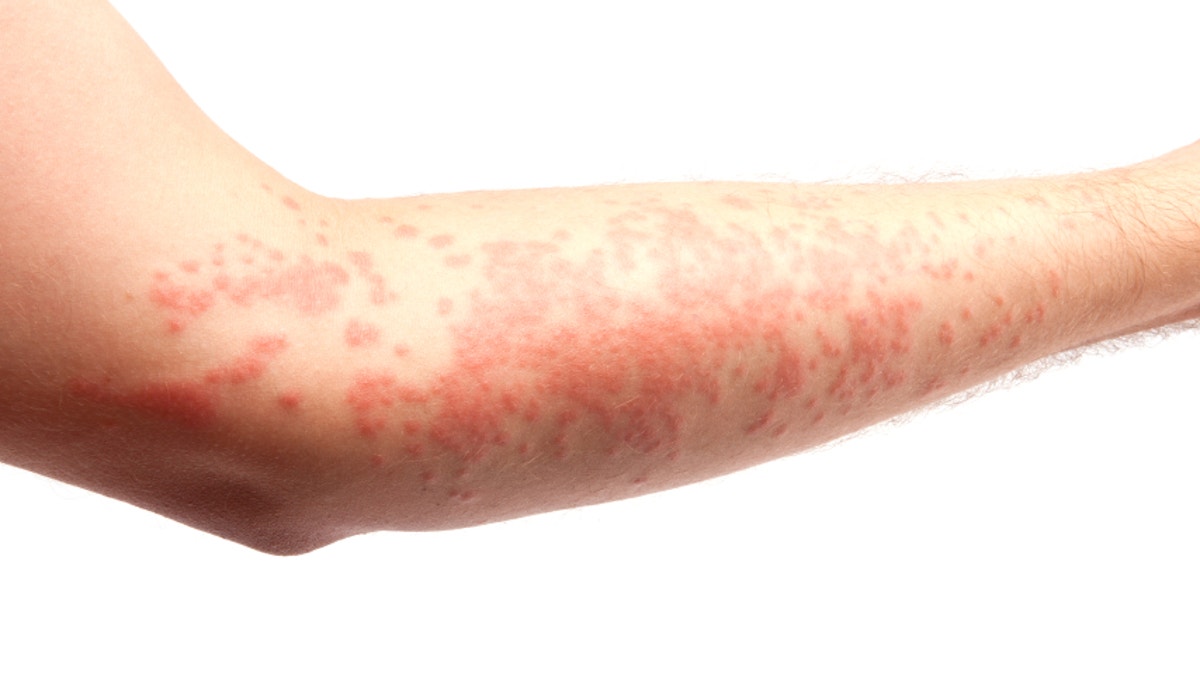
arm covered in a skin allergy,hives
LONDON – Babies given antibiotics in the first two years of life are more likely to develop allergies as adults, according to an extensive analysis of past clinical studies involving nearly 400,000 people.
The findings, to be presented on Tuesday at the European Respiratory Society annual meeting in London, point to a clear association with the risk of eczema or hay fever later in life.
Some previous research has suggested a link between early antibiotic use and allergies, but the results have been inconsistent.
Lead researcher Fariba Ahmadizar of Utrecht University said antibiotics most likely disrupted the body's immune system by impacting microbes in the gut, which can negatively affect immune responses.
Scientists have long puzzled over soaring allergy rates in developed countries, with many speculating that changing exposure to germs in childhood may be to blame, although the precise mechanism for this remains unclear.
The latest research involved trawling back through 22 studies conducted between 1966 and 2015. After pooling the results, Ahmadizar and colleagues found an increased risk of eczema due to early life use of antibiotics of 15 to 41 percent, while hay fever risk increased by 14 to 56 percent.
The association with allergies was stronger if patients received more than one course of antibiotics early in life.
Adam Finn, a professor of paediatrics at the University of Bristol, who was not involved in the research, said the findings added weight to evidence of long-term downside from antibiotic use. Medics are already worried about the emergence of antibiotic resistance due to drug over-use.
Still, Finn and other experts said doctors needed to balance out the risks and benefits, since antibiotics remain essential weapons in fighting bacterial infections, saving millions of lives.








































